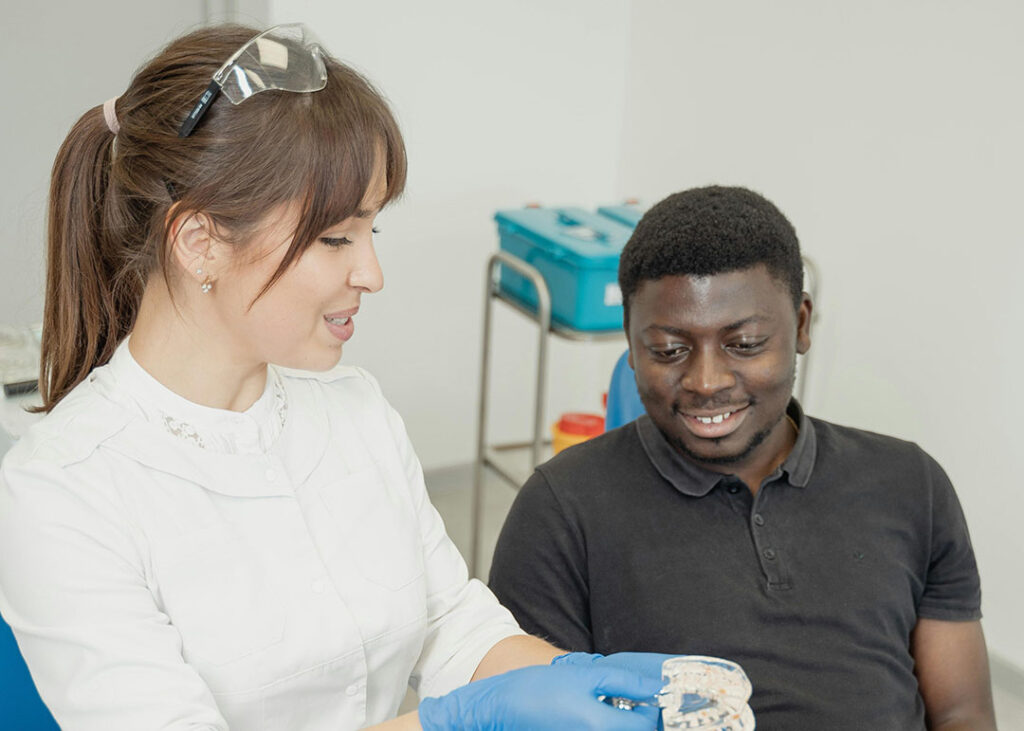So, you’re about to undergo the removal of wisdom teeth and might be feeling anxious. It’s okay—you’re not alone! Many young adults like you wonder what happens next, how much pain to expect, what foods to eat, and how soon you’ll be back on your feet. After the procedure, you might feel groggy from anesthesia and want to sleep. This is perfectly normal. Be sure to have someone available to drive you home. Let’s walk through everything you need to know and how to make recovery a breeze.
Learn More About Wisdom Teeth
Wisdom teeth are the last molars to emerge, typically making their grand entrance between ages 17 and 21. Most people have four wisdom teeth, one in each corner of the mouth. While some people are lucky and have enough room for these late bloomers, others aren’t so fortunate. Wisdom teeth grow during late adolescence to early adulthood, and a lack of space can lead to shifted or impacted teeth—meaning your wisdom teeth are trapped under the gum or growing at odd angles.
Wisdom teeth, also known as third molars, are the final set of teeth to make their appearance, usually between the ages of 17 and 21. These late bloomers can be just as functional as your other teeth if they grow in properly and are surrounded by healthy gum tissue. However, due to their position at the back of the mouth, they often don’t have enough room to emerge correctly, leading to potential issues. While wisdom teeth can be removed at any age, the ideal window for extraction is typically between 18 and 24 years old, when the roots are not fully developed, making the procedure easier and recovery faster.
Do Impacted Wisdom Teeth Hurt?
Yes, when impacted wisdom teeth are present, they can cause discomfort, pain, and even infection. These complications arise when the teeth do not erupt properly, leading to potential damage to neighboring teeth. An impacted wisdom tooth can become stuck beneath the gums or grow at odd angles, necessitating removal to prevent issues such as pain or infection. You may also experience gum swelling, difficulty opening your mouth, or tooth decay. Fortunately, getting these teeth removed can solve these issues and prevent future complications. Considering wisdom teeth removal? Schedule a consultation with Oral Facial Surgical Arts to learn more!
Preparing for Wisdom Teeth Extraction
Getting ready for wisdom teeth extraction involves a few essential steps to ensure everything goes smoothly. Your dentist or oral surgeon will provide you with detailed instructions tailored to your specific needs. Proper preparation can make a significant difference in your comfort and recovery time.

The Wisdom Teeth Removal Process with an Oral Surgeon
Wisdom teeth removal is an outpatient procedure typically performed by a dentist or oral surgeon. When getting your wisdom teeth removed, here’s what to expect:
Anesthesia: You’ll be given anesthesia to ensure you’re comfortable and pain-free. Your surgeon will decide on local anesthesia, sedation, or general anesthesia based on your needs.
Wisdom Tooth Extraction: The surgeon makes a small incision in the gum, removes the tooth, and may stitch the area. This process usually takes about 45 minutes to an hour.
Wisdom Tooth Removal Steps: After the extraction, you’ll be observed for a short period before heading home to rest and recover.
The recovery period following the removal of wisdom teeth varies from person to person. Here’s what you should expect and how to take care of yourself.
Managing Pain and Swelling
You may experience swelling and mild discomfort, which typically peaks two to three days post-surgery. Here’s what you can do:
Use Ice Packs: Apply ice packs to your cheeks during the first 24-48 hours to minimize swelling.
Pain Medication: Take any prescribed medications exactly as directed by your surgeon. Over-the-counter pain relievers can also help.
Eating After Wisdom Teeth Removal
You might be wondering, What can I eat? Here’s a quick guide on what you can eat. Want to learn more about wisdom teeth surgery recovery? Read this blog post about recovery time.

First 24 Hours: Stick to clear liquids like water, broth, or non-citrus juices. Gradually move to thicker liquids like smoothies or protein shakes (no straws!).
Days 2-3: Enjoy soft foods like mashed potatoes, applesauce, yogurt, and soups.
Beyond Day 3: Gradually introduce soft solids, avoiding spicy, crunchy, or chewy foods.
A soft-food diet helps prevent irritation at the extraction site. Take your time!
Serious Issues
Dry Socket: This occurs if the blood clot at the extraction site dislodges too early, causing pain and slowing healing. Avoid drinking through straws or spitting for the first three days.
Infection Signs: Seek help immediately if you experience severe pain, swelling, or difficulty swallowing.
Feeling unsure about your symptoms? Schedule a follow-up with Oral Facial Surgical Arts! Call your oral surgeon if you notice excessive bleeding, fever, persistent pain beyond a few days, or signs of infection. Numbness or tingling in your lip or tongue also warrants immediate attention.
Additional Tips From An Oral Surgeon
Here are some key steps your oral surgeon might recommend:
Rest: Take it easy and avoid strenuous activities for the first 24-48 hours to help your body heal.
Ice Packs: Use ice packs on your cheeks to reduce swelling and manage pain.
Soft Diet: Stick to soft foods like yogurt, mashed potatoes, and soups, and avoid hot or spicy foods that could irritate the extraction site.
Pain Management: Take any prescribed pain medications as directed to stay comfortable.
No Smoking: Avoid smoking and tobacco products to prevent complications and promote healing.
Stay Hydrated: Drink plenty of fluids to avoid dehydration.
Follow Instructions: Take medications as prescribed and follow your surgeon’s post-op care plan.
Oral Hygiene: Gently rinse with warm salt water after 24 hours but avoid vigorous swishing.
Follow-Up Appointments: Attend any scheduled follow-up visits to ensure proper healing and to have any stitches removed if necessary.
It’s also important to be aware of potential complications such as dry socket, infection, or nerve damage. If you experience severe pain, excessive bleeding, or significant swelling, contact your dentist or oral surgeon immediately. Maintaining good oral hygiene is also vital during recovery. Gently brush your teeth, avoiding the extraction site, and rinse with salt water to reduce the risk of infection.
By following these guidelines and taking good care of yourself, you can ensure a smooth and comfortable recovery from your wisdom teeth extraction. Still have questions? Schedule a follow-up visit with Oral Facial Surgical Arts to ensure you’re on the right track! After your wisdom teeth removal, following your dentist or oral surgeon’s post-operative care instructions is crucial for a smooth recovery. Proper care can help minimize discomfort and prevent complications.
Long-Term Oral Health Benefits
By removing impacted or problematic wisdom teeth, you can prevent issues like cysts, gum disease, and misalignment of other teeth. Regular check-ups with your dentist or oral surgeon will help maintain your oral health.

The journey after the removal of wisdom teeth doesn’t have to be overwhelming. With the right aftercare, you’ll be back to your routine in no time. Ready to take control of your oral health? Book your wisdom teeth consultation with Oral Facial Surgical Arts today!


